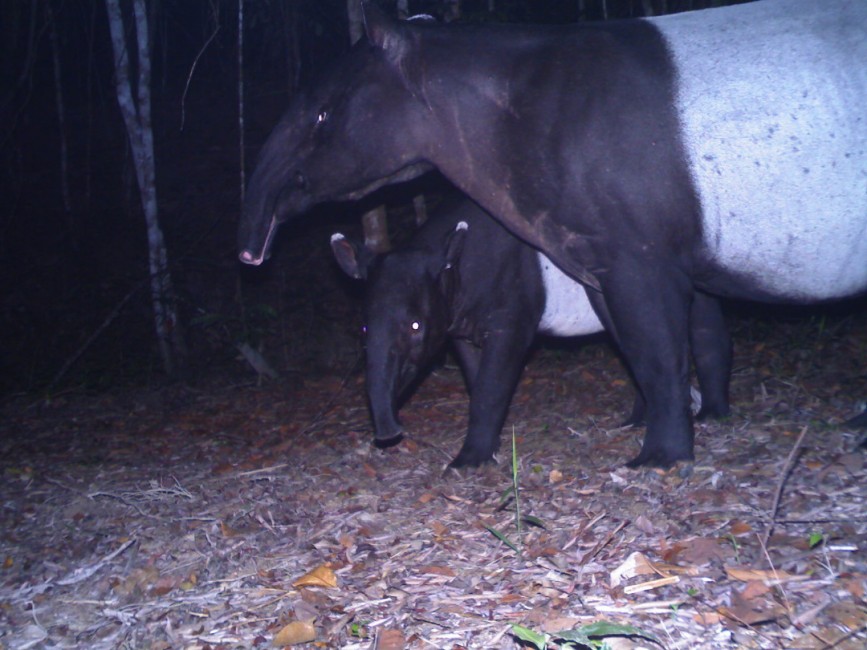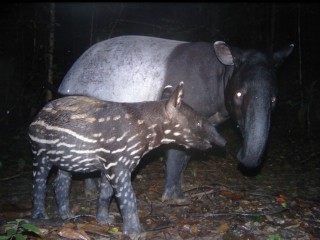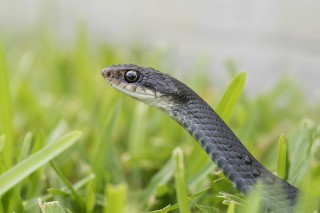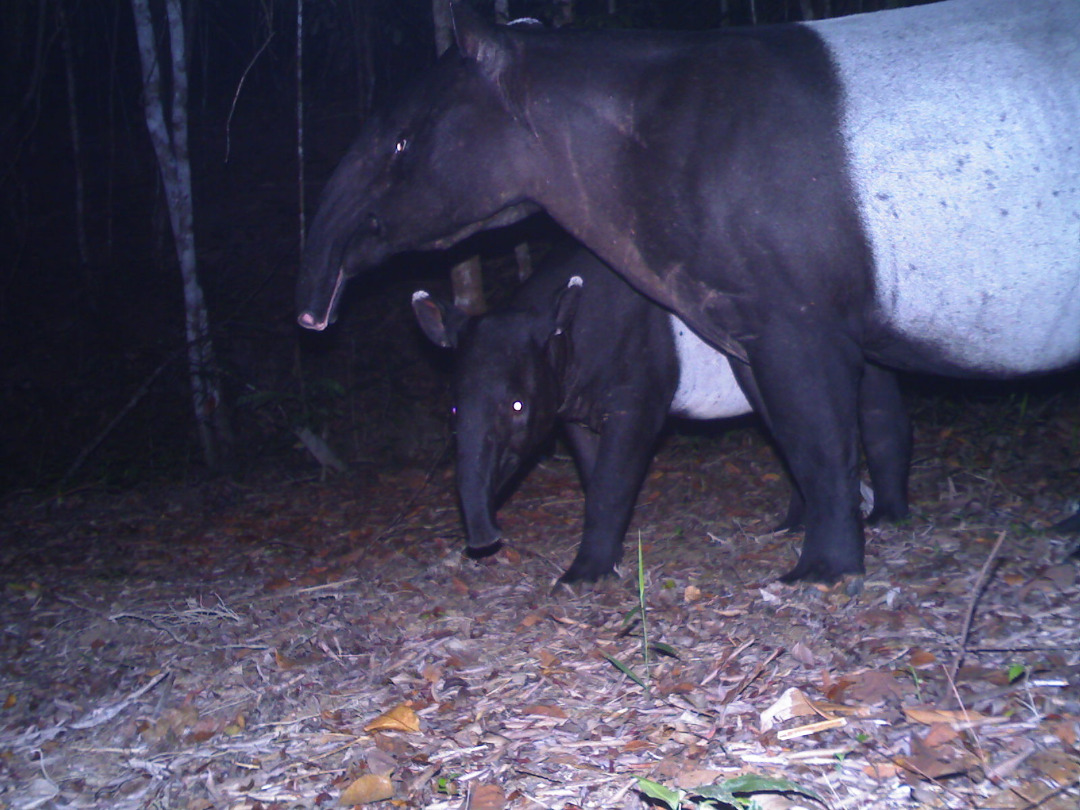
September 11, 2018
It is Black and White? Part 2
- as seen by -
 Melvin Gumal
Melvin Gumal
Between 2012 and 2016, 44 tapirs were roadkill victims. However, in 2017, 25 tapirs were roadkills, more than doubling the yearly average of tapir roadkills from the previous four years. Increasingly worrying is that parts of some of the tapirs killed by vehicles have been removed including the skin, trunk, and also their toes. Much thought needs to be given to Malaysia’s road infrastructure growth as 2,444 roadkills of many kinds of wildlife have been witnessed on roads throughout Peninsular Malaysia between 2012 and 2017.
Elevating roads and using viaducts are easy but expensive engineering solutions. Cheaper solutions also exist. These could include prevention of forest fragmentation, closing down roads between dusk to dawn (as observed around several protected areas in India), introduction of speed bumps and speed cameras, policing wildlife crossing hotspots, or slowing down traffic at these areas.
The solutions to reduce vehicular speed at the various locations are not always black and white. Different recommendations may need to be crafted for the various sites where tapirs are found crossing roads. It is black and white that these enigmatic animals must survive into the future as they are effective dispersers of large seeds that help grow forests.
EDITOR’S NOTE: Read Part 1 here.




Comments